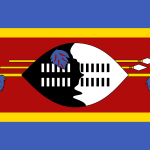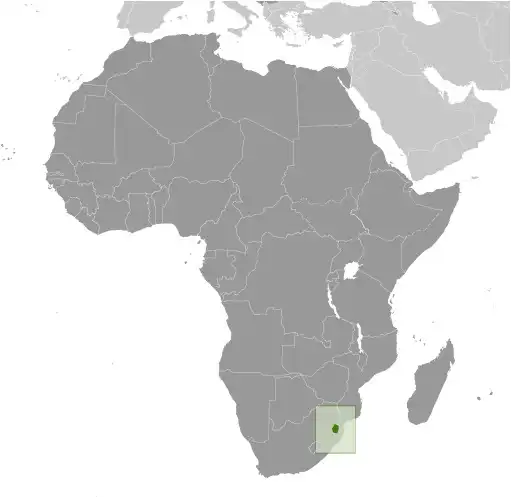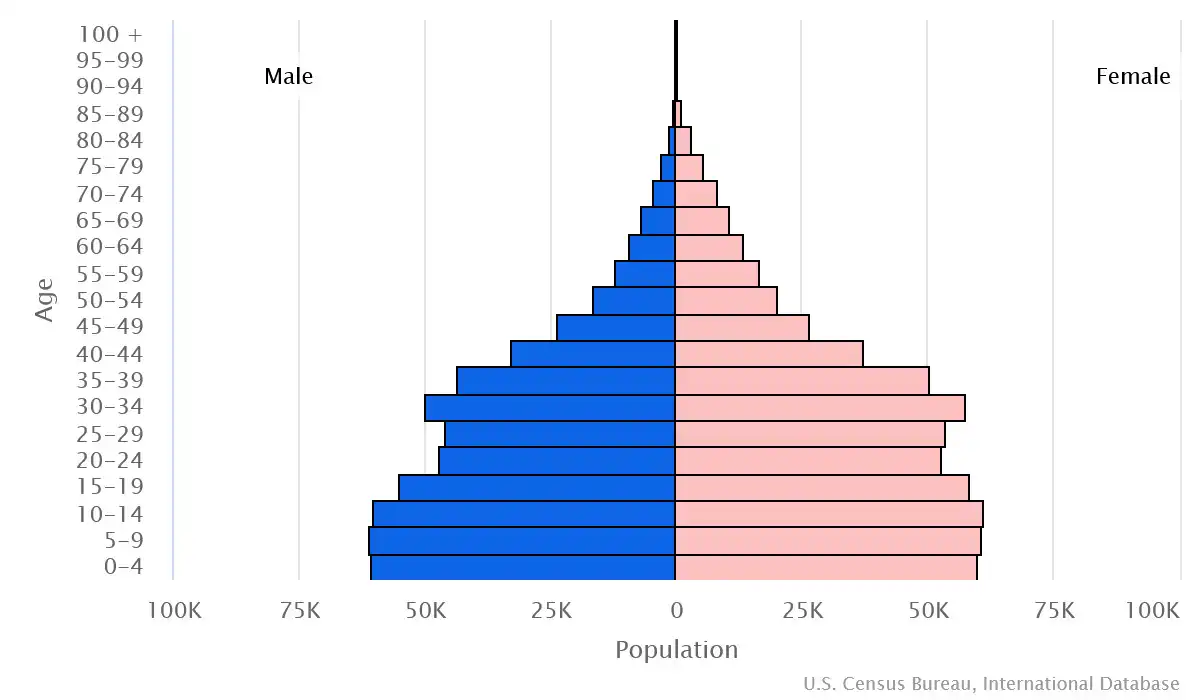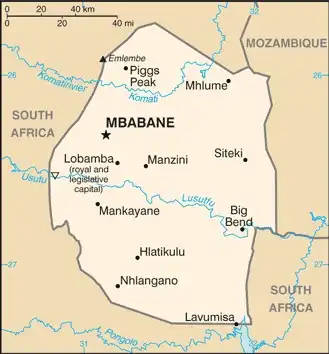
Swaziland (Eswatini)
Country Data Dashboard

| Government type: | absolute monarchy |
| Capital: | Mbabane (administrative capital); Lobamba (royal and legislative capital) |
| Languages: | English (official, used for government business), siSwati (official) |
People & Society
Ethnicity (Zulu & European ancestry)
Religion (2015 est.)
Age structure

Economy
Economic overview
landlocked southern African economy; South African trade dependent and currency pegging; CMA and SACU member state; COVID-19 economic slowdown; growing utilities inflation; persistent poverty and unemployment; HIV/AIDS labor force disruptions
Real GDP (purchasing power parity) in Billion $
Real GDP per capita in $
Exports & Imports in billion $
Top 5 Import Partner in 2022 (89%)
Top 5 Import Commodities in 2022
- refined petroleum ⛽
- gold 💰
- plastic products ♻️
- electricity ⚡
- garments 👕
Top 5 Export Partner in 2022 (89%)
Top 5 Export Commodities in 2022
- scented mixtures 🌸🧴
- raw sugar 🍚
- garments 👕
- industrial acids/oils/alcohols 🛢️
- wood 🌲
Geography
Map

Area
Natural resources
- asbestos 🏭💨
- coal ⚫
- clay 🧱
- cassiterite 🪙
- hydropower 💧⚡
- forests 🌳
- small gold and diamond deposits 💰
- quarry stone 🪨
- and talc 🪨
Climate
varies from tropical to near temperate
Historical Background Information
A Swazi kingdom was founded in the mid-18th century and ruled by a series of kings, including MSWATI II, a 19th century ruler whose name was adopted for the country and its predominant ethnic group. European countries defined the kingdom’s modern borders during the late-19th century, and Swaziland (as it became known) was administered as a UK high commission territory from 1903 until its independence in 1968. A new constitution that came into effect in 2005 included provisions for a more independent parliament and judiciary, but the legal status of political parties remains unclear, and the kingdom is still considered an absolute monarchy. King MSWATI III renamed the country from Swaziland to Eswatini in 2018 to reflect the name most commonly used by its citizens.
In 2021, MSWATI III used security forces to suppress prodemocracy protests. A national dialogue and reconciliation process agreed to in the wake of violence has not materialized. In November 2023, King MSWATI III appointed a new prime minister following peaceful national elections. Despite its classification as a lower-middle income country, Eswatini suffers from severe poverty, corruption, and high unemployment. Eswatini has the world's highest HIV/AIDS prevalence rate, although recent years have shown marked declines in new infections. Eswatini is the only country in Africa that recognizes Taiwan.
